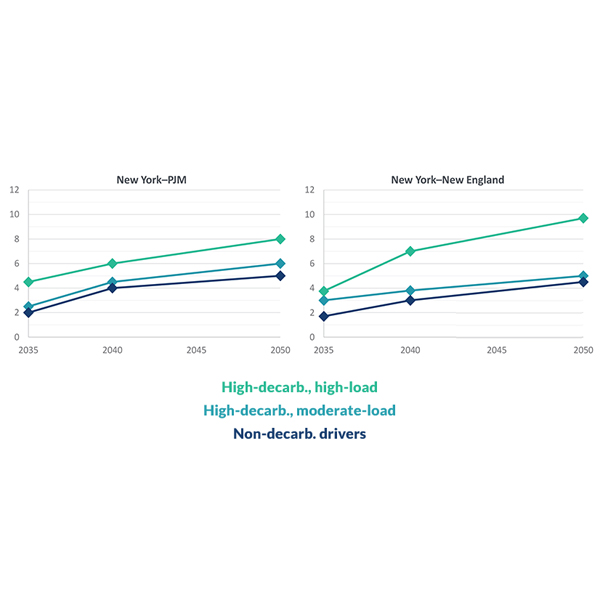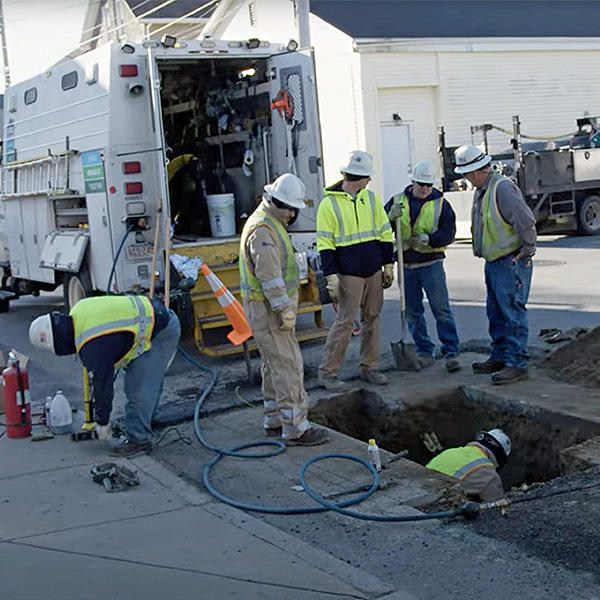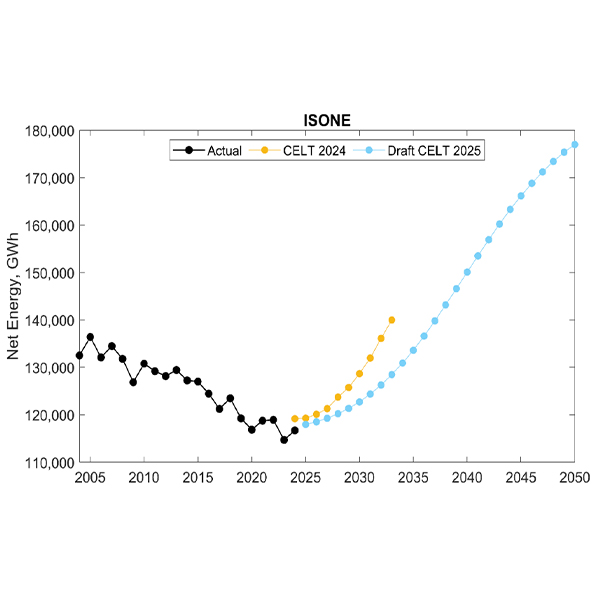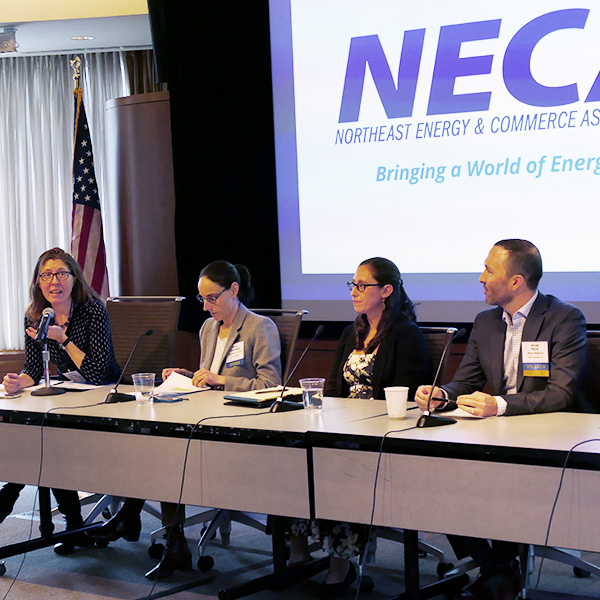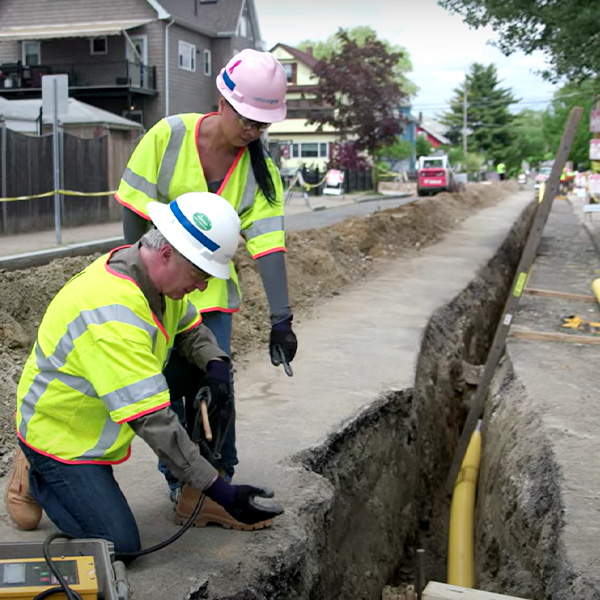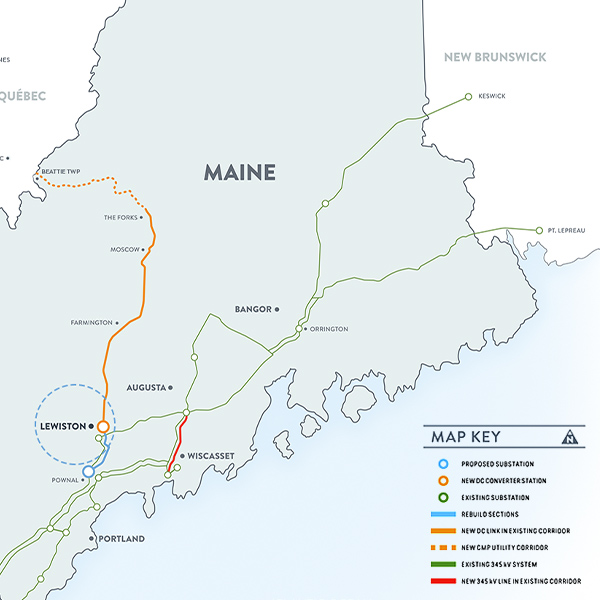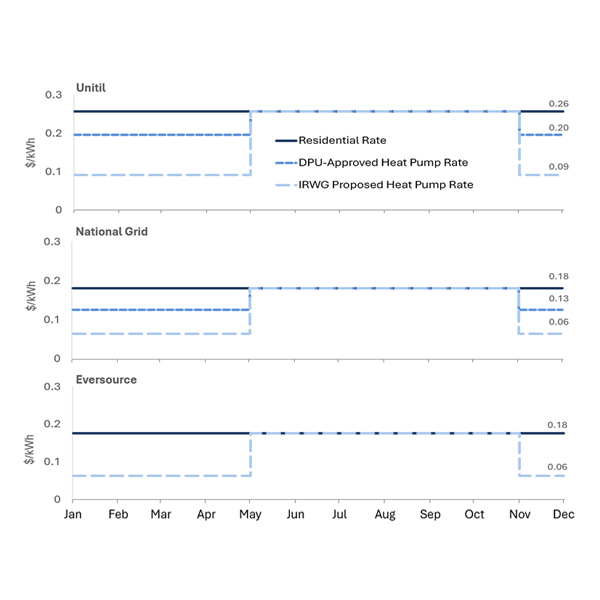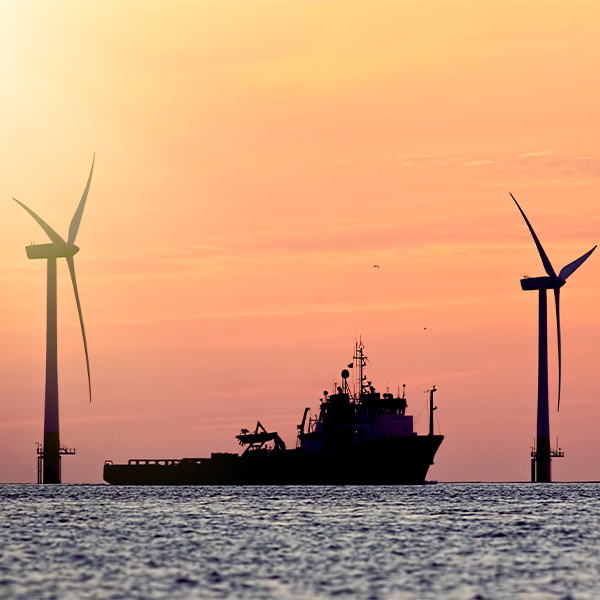Massachusetts
The Northeast States Collaborative on Interregional Transmission released a strategic action plan for creating an interstate planning process for transmission projects that span the seams of their grid operators.
Business groups and environmental advocates expressed divergent views on a proposal by the Massachusetts Department of Public Utilities that would require new gas customers to cover the entire cost of connecting to the system.
State energy officials emphasized the need for increased oversight for transmission investments at Raab Associates’ New England Electricity Restructuring Roundtable.
As part of a major overhaul of its annual load forecasting process, ISO-NE has significantly scaled back its electrification forecast for electric vehicles and heat pumps.
Uncertainty around federal funding, permitting approvals and tariffs is creating major challenges for clean energy development in the Northeast, industry representatives said at NECA’s annual Renewable Energy Conference.
The Massachusetts DPU has proposed requiring customers who request new gas service to cover the full cost of any needed line extensions, which effectively would end utilities’ practice of spreading the costs across their rate base.
The Massachusetts Department of Public Utilities approved a settlement agreement for the New England Clean Energy Connect transmission line, authorizing a significant cost increase to account for regulatory delays to the project.
Government affairs experts previewing New England’s 2025 legislative sessions outlined some key policy overlaps and notable differences among states during a webinar held by the Northeast Energy and Commerce Association.
The adoption of simple near-term rate reforms could help Massachusetts achieve its electrification goals while minimizing effects on ratepayers, an interagency working group concluded.
Vineyard Offshore no longer plans to proceed with its bid for the 1,200-MW Vineyard Wind 2 project following Connecticut’s decision not to buy power from the project.
Want more? Advanced Search
